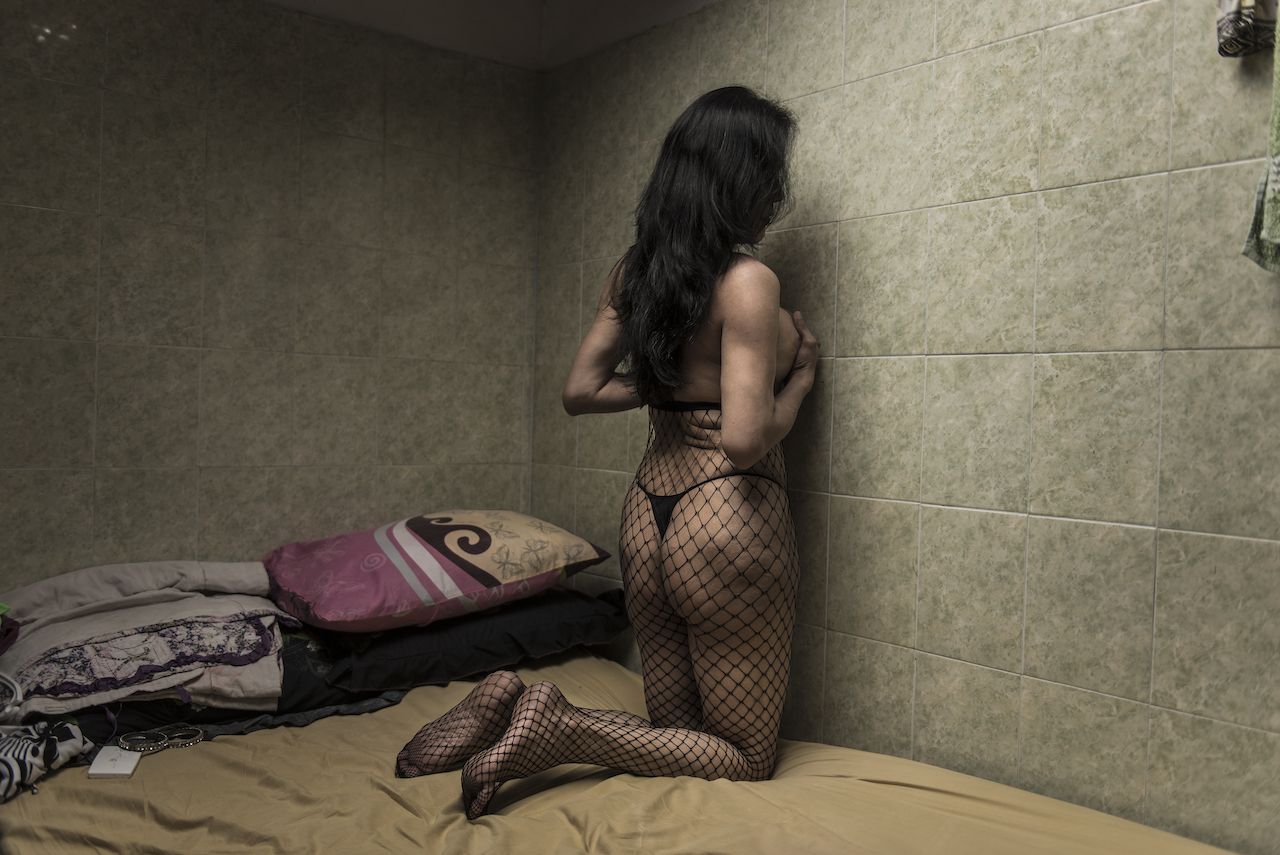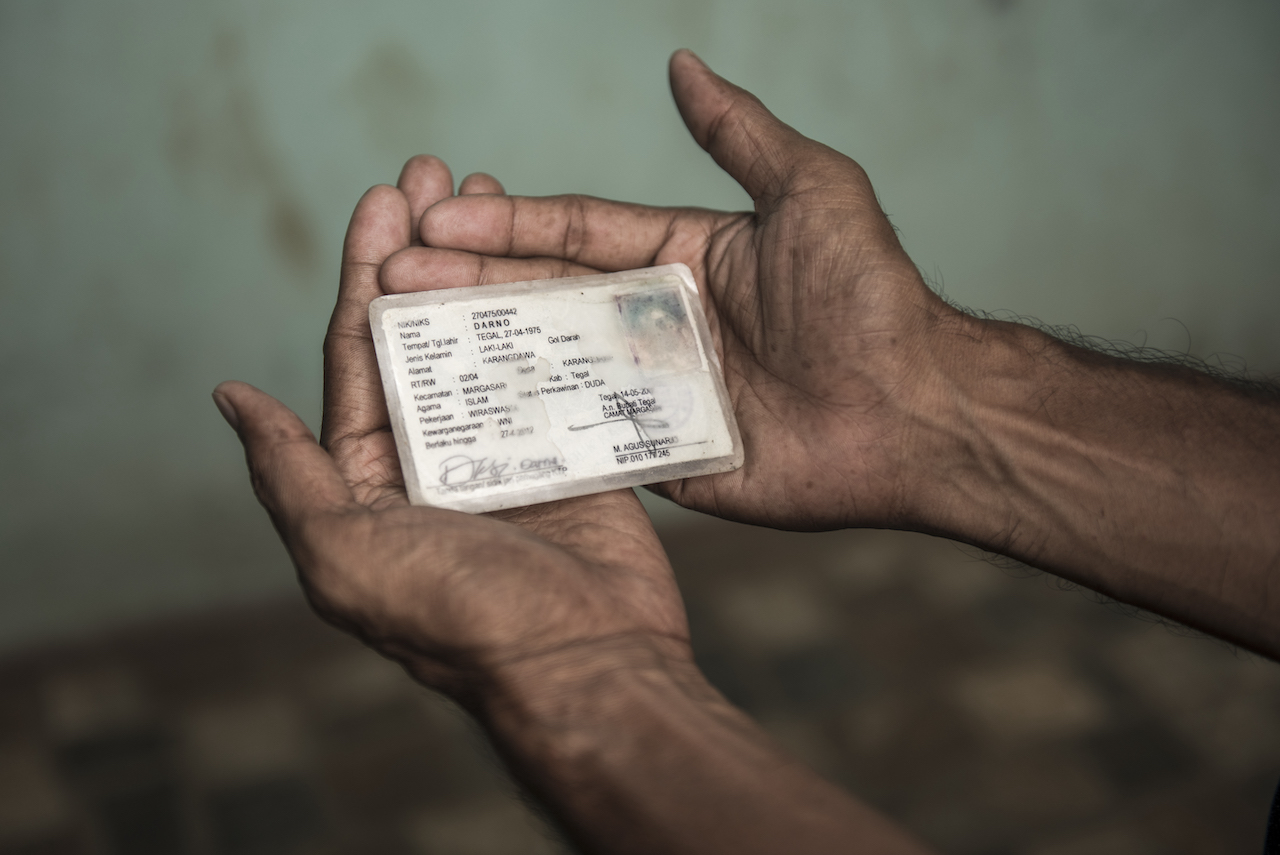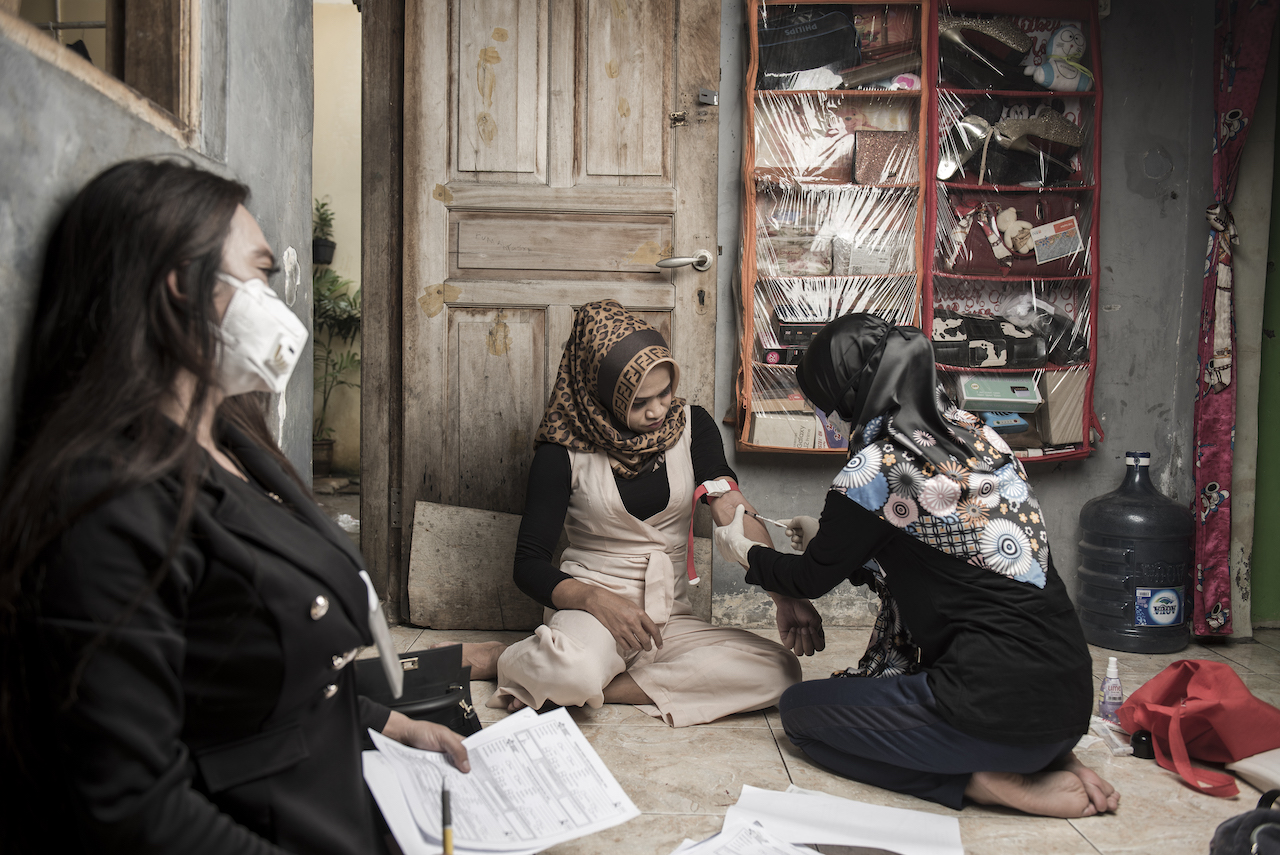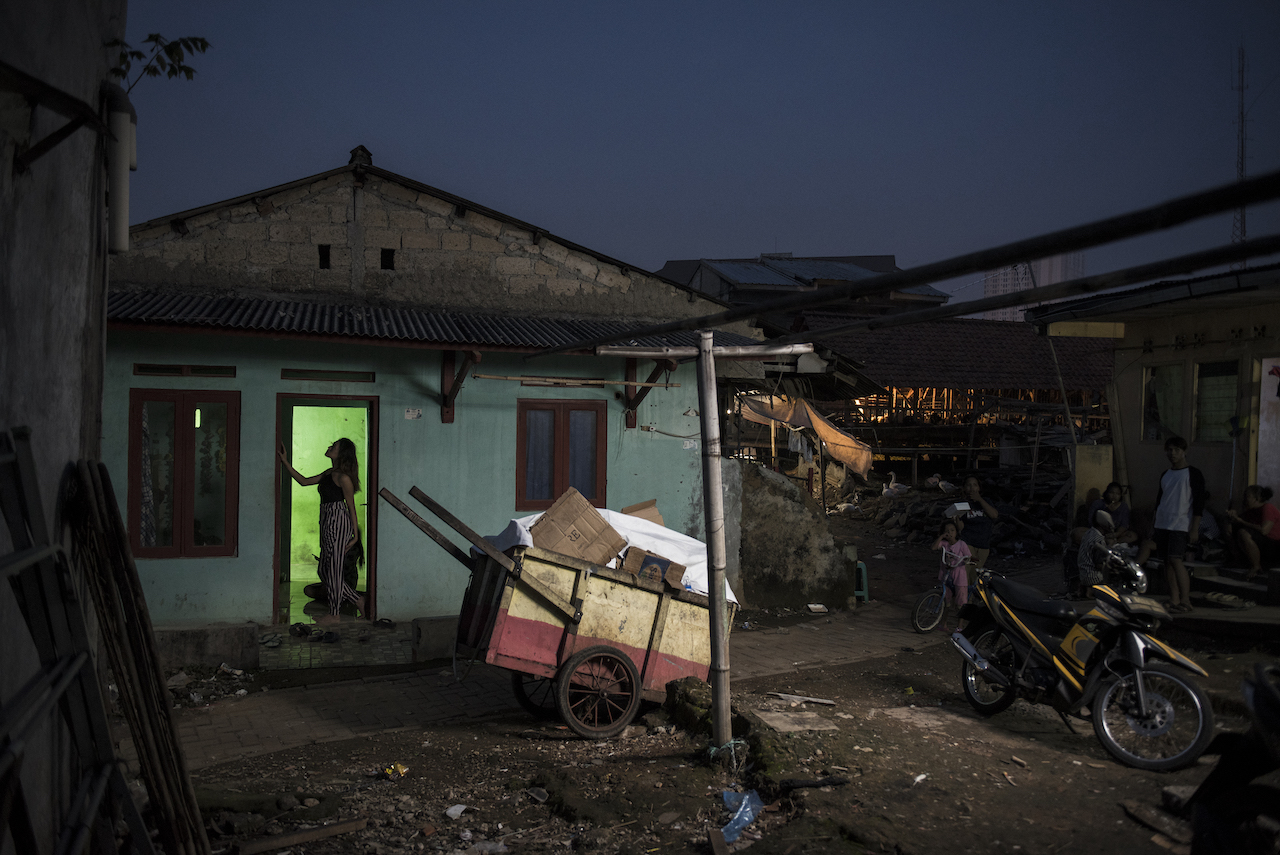The Jakarta-based visual storyteller captures hope and resilience in the trans community at a time of great suffering
In March 2020, when Indonesia implemented coronavirus restrictions across the country, photographer Yoppy Pieter stumbled across an Instagram post describing the particular challenges the pandemic posed to Indonesian trans women. That May, the visual storyteller carefully journeyed across the country’s Covid-19 hotspots: Jakarta, Depok, and Tangerang Selatan. He documented the women, who often lived in poverty and without official government documents, as they navigated the early days of the pandemic.
Trans Woman: Between Colour and Voice provides a glimpse into the strength and bravery of these women, and their struggle at a time of unimaginable global suffering. “We all agree that Covid-19 has affected everyone, but the story turned out differently for invisible individuals who have experienced discrimination long before the pandemic, such as the trans woman community,” says Pieter.
One image reveals Darni’s old ID card, expired in 2012, with her dead name. The card – a key that grants Indonesian citizens access to education, financial support, and healthcare – is tattered, her image indiscernible. As Pieter explains, 70 percent of trans women don’t have valid ID cards, meaning they had no access to health services as the virus swept through Indonesia. “Most trans women leave their home when they are teenagers due to domestic conflicts over their identity. They leave their family without having official documents and proper education…Practically, this obstacle has dragged them into the poverty cycle.”
Many of these women lost their jobs early in the pandemic and couldn’t afford living at home. Barred from receiving vaccinations, testing services, and government benefits, many were forced to work in fields where risk of infection was high. Pieter recalls a painful refrain among his subjects: “I’d rather die from the coronavirus than from hunger.”
And yet, while exposing the impossible conditions that many trans women were forced to live under, Pieter captures a sense of communal resilience and personal fortitude in those he photographs. His images, which won the Wellcome Photography Prize 2021, are focused and sharp, exploding in lavish reds, blues, and corals. Women are rarely depicted alone, instead surrounded by their chosen family. “I aimed to deliver to humanity the universal secret of hope, which is to find balance between fear and strength,” says Pieter.
Lila, a trans woman in Serpong, South Tangerang, sits on the floor as she is tested for HIV. By her side is Aurel, who works for Pelita Tangsel, an organisation which helps trans women receive health services without official documentation. Other images show two individuals touching cheeks, mid-embrace; an impoverished area in Depok, West Java, where a community of trans women live; and a woman, Mama Dona, resting on the knee of Mama Yuli, who heads the Indonesian Transgender Communication Forum. During the pandemic, Mama Yuli distributed resources and gave financial support to Indonesia’s trans community, which she fundraised from individuals and churches, in lieu of government benefits. It was Mama Yuli who first helped Pieter access the Indonesian trans community and meet his future subjects.
Pieter’s images were partly inspired by realist paintings, imbuing the subject matter with grandeur. In one, three women kneel on a bed in a row, styling each other’s hair. Each wears a dress: one in cerulean blue with lace detail, two in floral sundresses. They sit on a floral bedspread, encircled in stuffed toys. Unlike their cosy, childhood-like backdrop, the three are ornately accessorised and made up. They stare right at the camera: confrontational, serious, regal.
In September 2020, Pieter’s images were published in National Geographic Indonesia, copies of which he gifted to his subjects “as a form of honour”. He described their reactions as diverse: “From being touched, to admiring their beauty. When I saw them looking at themselves in the magazine, it elevated their emotions on so many levels.”
His hope for Between Color and Voice is simple but hard-fought: to help trans women in Indonesia live full, safe, equal lives. Pieter explains that since April 2021, the government has become more proactive about providing its trans community with ID cards, though it refuses to change the document’s gender column to match that of the corresponding person. “The system, both society and government, tend to silence their voices just because they are the individuals who stand for their faith,” Pieter says. “I wanted to make every single portrait a representation of what they feel, how they fight the obstacles in this difficult time, and how they strengthen their solidarity.”
Trans Woman: Between Colour and Voice by Yoppy Pieter is the winner of this year’s Wellcome Photography Prize.




